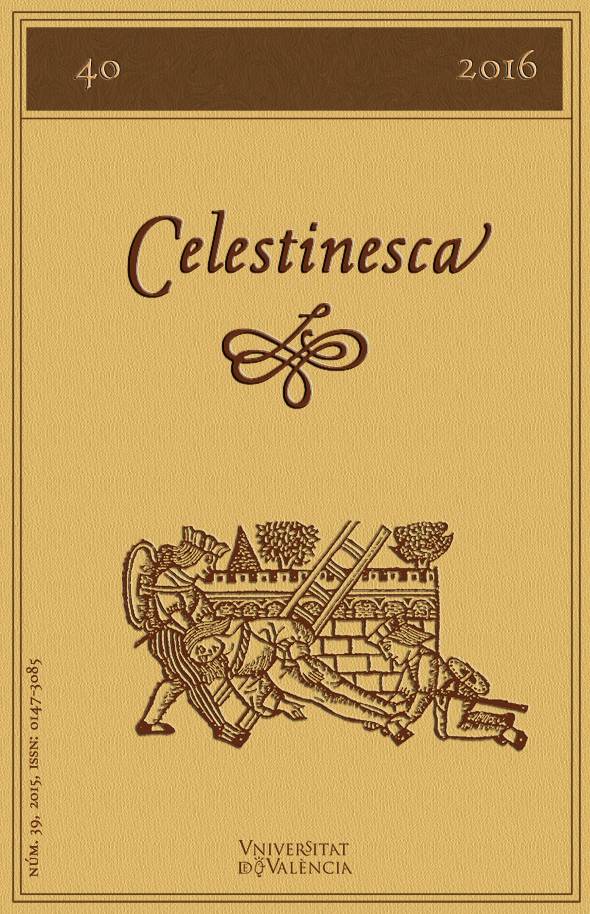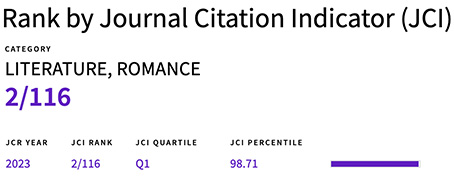Melibea, Plácida and Serafina: three violent deaths in the early renaissance theatre
DOI:
https://doi.org/10.7203/Celestinesca.40.20194Keywords:
Suicide, Renaissance theatre, Celestinesque genre, Lovesickess Abstract
Abstract
The motif of suicide is commonly present among male characters in Spanish theatre written in the first third of 16th century. However, its presence among female characters has been under-appreciated. In this paper we develop an a study about three suicides caused by love in three plays from a similar time period: the Tragicomedia de Calisto y Melibea, by Fernando de Rojas, the Égloga de Plácida y Vitoriano by Juan del Encina and the Comedia Serafina, by Bartolomé de Torres Naharro. For this analysis we take into consideration the perspective of lovesickness and the genre of each play in order to highlight the import of the motif of suicide with female characters.
 Downloads
Downloads
Downloads
Published
How to Cite
-
Abstract420
-
PDF (Español)285
Issue
Section
License
![]() Celestinesca is committed to the dissemination of knowledge, that is why access to its contents is free and is ruled by a Creative Commons Attribution-NonCommercial-NoDerivatives 4.0 license.
Celestinesca is committed to the dissemination of knowledge, that is why access to its contents is free and is ruled by a Creative Commons Attribution-NonCommercial-NoDerivatives 4.0 license.
Authors retain the rights to their works. Therefore, they can disseminate them and deposit them in the repository, institutional or not, that they wish. However, they are kindly requested to do so by providing the full bibliographic reference and the corresponding DOI.
Celestinesca does not charge authors for submitting, processing, reviewing or publishing their articles.





